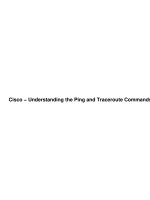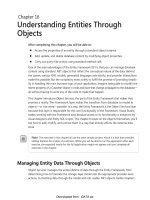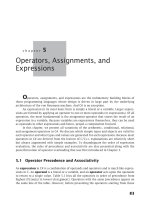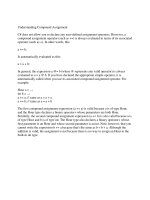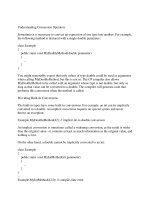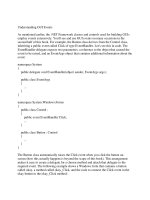Understanding Compound Assignment
Bạn đang xem bản rút gọn của tài liệu. Xem và tải ngay bản đầy đủ của tài liệu tại đây (6.94 KB, 1 trang )
Understanding Compound Assignment
C# does not allow you to declare any user-defined assignment operators. However, a
compound assignment operator (such as +=) is always evaluated in terms of its associated
operator (such as +). In other words, this:
a += b;
Is automatically evaluated as this:
a = a + b;
In general, the expression a @= b (where @ represents any valid operator) is always
evaluated as a = a @ b. If you have declared the appropriate simple operator, it is
automatically called when you use its associated compound assignment operator. For
example:
Hour a = ...;
int b = ...;
a += a; // same as a = a + a
a += b; // same as a = a + b
The first compound assignment expression (a += a) is valid because a is of type Hour,
and the Hour type declares a binary operator+ whose parameters are both Hour.
Similarly, the second compound assignment expression (a += b) is also valid because a is
of type Hour and b is of type int. The Hour type also declares a binary operator+ whose
first parameter is an Hour and whose second parameter is an int. Note, however, that you
cannot write the expression b += a because that's the same as b = b + a. Although the
addition is valid, the assignment is not because there is no way to assign an Hour to the
built-in int type.

